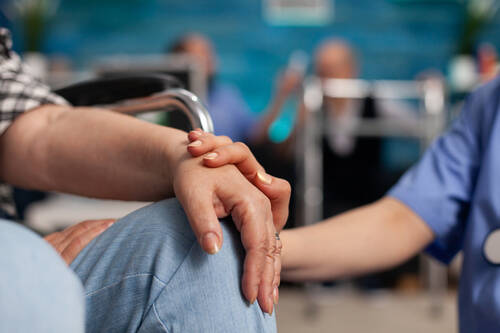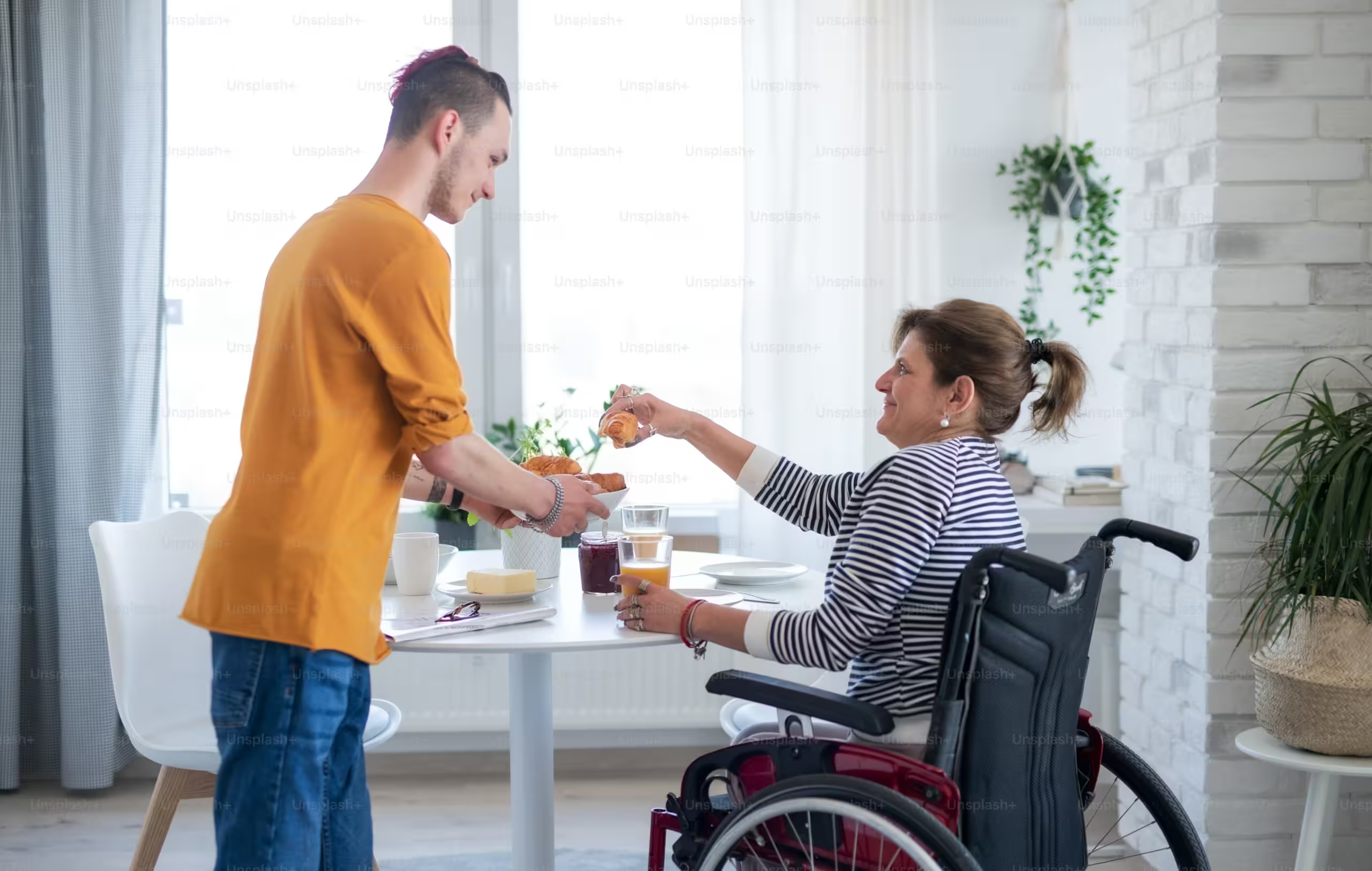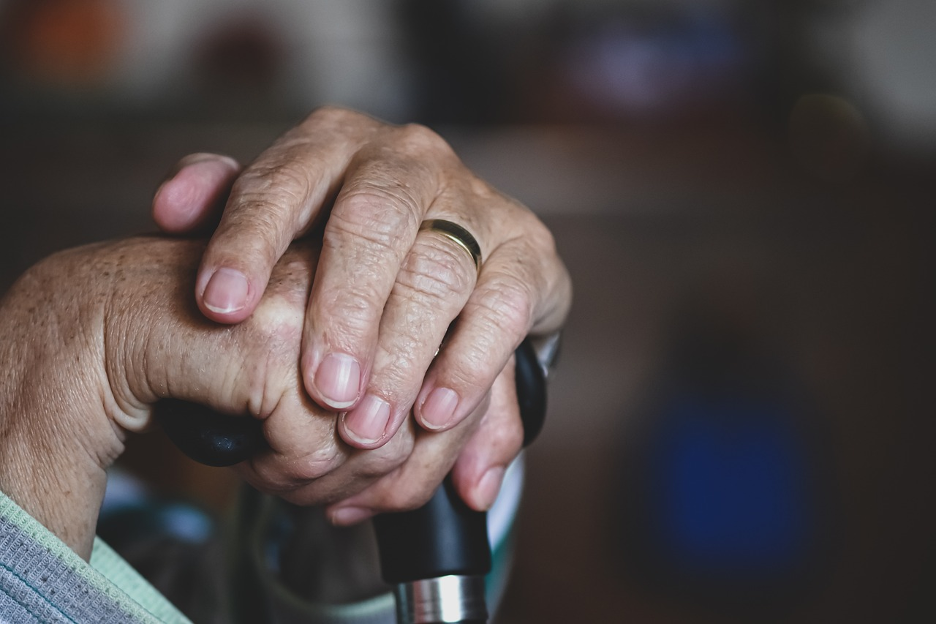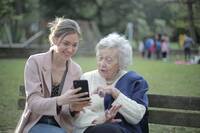Rehabilitation Trends Empowering Home Care for Recovering Patients
The Rise of Home-Based Rehabilitation
Why Home Care is Gaining Popularity
The appeal of home-based recovery goes beyond comfort - it is also about the psychological benefits. Home is where people feel most relaxed and supported, which can accelerate the healing process. Studies have shown that lower stress levels, often experienced at home, contribute to faster recovery. The ability to maintain daily routines in a familiar environment provides both physical and emotional comfort, motivating patients to stick with their recovery plans.Impact of COVID-19 on Home Rehabilitation
The COVID-19 pandemic accelerated the shift towards home-based care. With hospitals under strain and concerns about exposure to the virus, many turned to home care as a safer option. This shift highlighted that with the right support and equipment, such as a rotating bed is a lifesaver for those with limited mobility, effective rehabilitation can indeed happen at home. Telehealth services have played a crucial role in this transition, allowing patients to consult with healthcare providers remotely. This not only reduces the risk of infection but also offers the flexibility to receive care at convenient times, making home recovery more accessible. (more…)What to Look for in In-Home Care: Ensuring Quality and Compassion
Assessing Lifestyle Compatibility
When searching for “in home care agencies near me”, it's important to consider how well the service will fit with your loved one's lifestyle. The agency should respect and accommodate their daily routines and preferences. This includes meal times, hobbies, and social activities. A compatible lifestyle ensures a smooth transition and maintains the individual's comfort. Moreover, personalized attention to lifestyle helps improve mental health and overall well-being. Feeling at ease in a familiar environment boosts happiness and reduces stress. The caregivers must understand and integrate these aspects into their care plans. This compatibility is a cornerstone of quality in-home care. (more…)Why It’s Important to Have Fall Detection for Your Medical Alert Systems: Enhancing Safety and Quick Response
 Fall Detection Technology
Fall Detection Technology
Fall detection technology relies on advanced sensors and algorithms to ensure timely assistance when a fall occurs. This technology is built into various wearable devices, offering accuracy and reliability in monitoring movements and detecting falls.
How Fall Detection Works
Fall detection systems typically use accelerometers and gyroscopes embedded within the device to monitor movement patterns. When a fall is detected, the device triggers an alert, contacting emergency services or a designated caregiver automatically. These systems measure changes in speed and orientation to identify sudden impacts. They provide a vital safety net for individuals who might not be able to manually signal for help following a fall. (more…)- Encourage periodic tests and check-ups for seniors
Reeve Foundation: Results of “Living with Paralysis & Caregiver National Survey”
Caregivers Own Cardiovascular Health Can Be Overlooked
Female Caregivers of Dementia Patients Suffer from Poor Sleep
Childhood Abuse More Likely With Male Caregiver, especially Mother’s Boyfriend
MedicalResearch.com Interview with:
Amanda Fingarson, DO Attending Physician, Child Abuse Pediatrics Ann and Robert H. Lurie Children’s Hospital of Chicago Assistant Professor of Pediatrics Feinberg Northwestern School of Medicine
MedicalResearch.com: What is the background for this study? What are the main findings?
Response: Child physical abuse is a substantial pediatric public health issue, with significant morbidity and mortality. Studies have found that men, particularly children’s fathers and mothers’ boyfriends are common perpetrators of physical abuse. There is still a lack of knowledge, however, about the specific caregiver features that increase a child’s risk for physical abuse.
Our study design was unique, in that it was a multi-center study that compared young children with abusive and accidental injuries. Our primary finding was that abuse was much more likely when a male caregiver was present, and the resulting injuries were more likely to be severe or fatal. The presence of the mother’s boyfriend was the riskiest scenario, with the highest likelihood of abuse. Similarly, we found that caregiver relationships of less than 1 year increased the odds of abuse. Overall, the likelihood of abuse with female caregivers was much lower, with the exception of female babysitters. A final important finding of our study was that caregiving arrangements that were different than usual at the time of injury were at increased risk of abuse, suggesting that a stable and consistent caregiver is also important. (more…)
Cancer Caregivers Report More Stress Than For Non-Cancer Conditions
Hospice Care May Decrease Depression in Surviving Spouses
 MedicalResearch.co Interview with:
Katherine Ornstein, PhD MPH
Assistant Professor
Brookdale Department of Geriatrics and Palliative Medicine
Institute for Translational Epidemiology
Icahn School of Medicine at Mount Sinai
New York, NY 10029
Medical Research: What is the background for this study? What are the main findings?
Dr. Ornstein: There is an increased focus on the need to support caregivers and families, particularly at the End of Life (EOL). They play a critical role in the care process and decision making, yet this can be a very high stress role with an increased risk for negative consequences. Hospice services, which are increasing, are focused on palliative rather than curative care and include medical services, symptom management, spiritual counseling, social services and bereavement counseling delivered by an interdisciplinary team of professionals for dying patients. An important part of the hospice service is the provision of support to families during illness and after death. Prior research suggests that hospice (which is cost saving, has benefits to patients), may also be beneficial to families. Yet these studies have been largely limited to patients with cancer, have failed to adequately control for differences between patients who do or do not use hospice.
Overall, there was an increase in depressive symptoms after death. However, surviving spouses of those who used hospice were more likely to have a decrease in depressive symptoms. We found that the positive benefit of hospice was much stronger when we looked at least 1 year after death.
(more…)
MedicalResearch.co Interview with:
Katherine Ornstein, PhD MPH
Assistant Professor
Brookdale Department of Geriatrics and Palliative Medicine
Institute for Translational Epidemiology
Icahn School of Medicine at Mount Sinai
New York, NY 10029
Medical Research: What is the background for this study? What are the main findings?
Dr. Ornstein: There is an increased focus on the need to support caregivers and families, particularly at the End of Life (EOL). They play a critical role in the care process and decision making, yet this can be a very high stress role with an increased risk for negative consequences. Hospice services, which are increasing, are focused on palliative rather than curative care and include medical services, symptom management, spiritual counseling, social services and bereavement counseling delivered by an interdisciplinary team of professionals for dying patients. An important part of the hospice service is the provision of support to families during illness and after death. Prior research suggests that hospice (which is cost saving, has benefits to patients), may also be beneficial to families. Yet these studies have been largely limited to patients with cancer, have failed to adequately control for differences between patients who do or do not use hospice.
Overall, there was an increase in depressive symptoms after death. However, surviving spouses of those who used hospice were more likely to have a decrease in depressive symptoms. We found that the positive benefit of hospice was much stronger when we looked at least 1 year after death.
(more…)Destination LVAD Devices Come With Caregivers’ Concerns and Tensions
 MedicalResearch.com Interview with:
Colleen K. McIlvennan, DNP, ANP
Assistant Professor of Medicine
University of Colorado, Division of Cardiology
Section of Advanced Heart Failure and Transplantation
Medical Research: What is the background for this study?
Response: Destination therapy left ventricular assist device (DT LVAD) patients are often older with significant comorbidities that preclude heart transplantation. As such, the decision to get a DT LVAD is arguably more complicated than the decision to receive a temporary LVAD in anticipation of a transplant. Centers offering LVADs often require the identification of a caregiver prior to proceeding with the implant. Caregivers are commonly female spouses of DT LVAD patients, who are also older with co-morbidities. Understanding their perspective in DT LVAD decision making is extremely important as they are at particular risk for experiencing stress and caregiver burden due to the increased demands on caregiving with DT LVAD.
Medical Research: What are the main findings?
Response: We performed semi-structured qualitative interviews with 17 caregivers: 10 caregivers of patients living with DT LVAD, 6 caregivers of patients who had died with DT LVAD, and 1 caregiver of a patient who had declined DT LVAD. Throughout the interviews, the overarching theme was that considering a DT LVAD is a complex decision-making process.
Additionally, three dialectical tensions emerged:
1) the stark decision context, with tension between hope and reality;
2) the challenging decision process, with tension between wanting loved ones to live and wanting to respect loved ones’ wishes; and
3) the downstream decision outcome, with tension between gratitude and burden.
(more…)
MedicalResearch.com Interview with:
Colleen K. McIlvennan, DNP, ANP
Assistant Professor of Medicine
University of Colorado, Division of Cardiology
Section of Advanced Heart Failure and Transplantation
Medical Research: What is the background for this study?
Response: Destination therapy left ventricular assist device (DT LVAD) patients are often older with significant comorbidities that preclude heart transplantation. As such, the decision to get a DT LVAD is arguably more complicated than the decision to receive a temporary LVAD in anticipation of a transplant. Centers offering LVADs often require the identification of a caregiver prior to proceeding with the implant. Caregivers are commonly female spouses of DT LVAD patients, who are also older with co-morbidities. Understanding their perspective in DT LVAD decision making is extremely important as they are at particular risk for experiencing stress and caregiver burden due to the increased demands on caregiving with DT LVAD.
Medical Research: What are the main findings?
Response: We performed semi-structured qualitative interviews with 17 caregivers: 10 caregivers of patients living with DT LVAD, 6 caregivers of patients who had died with DT LVAD, and 1 caregiver of a patient who had declined DT LVAD. Throughout the interviews, the overarching theme was that considering a DT LVAD is a complex decision-making process.
Additionally, three dialectical tensions emerged:
1) the stark decision context, with tension between hope and reality;
2) the challenging decision process, with tension between wanting loved ones to live and wanting to respect loved ones’ wishes; and
3) the downstream decision outcome, with tension between gratitude and burden.
(more…)Stroke Caregiver Depressive Symptoms Vary by Ethnicity
End-of-Life Patients and Caregivers May Face Complex Co-Morbidities and Medications
 MedicalResearch.com Interview with:
Dr. Kirsty Boyd
Programme theme head (Clinical Communication)
Honorary Clinical Senior Lecturer
Primary Palliative Care Research Group
Division of Community Health Sciences: General Practice
University of Edinburgh
Medical Research: What do we know already about people with ‘multimorbidity’?
Dr. Boyd: We know that an increasing number of patients have multiple life-limiting illnesses or progressively deteriorating health due to several long term conditions or general frailty. Caring for them well poses major challenges and they are often hospitalised in the last year of life. They do not fit well into illness and healthcare models that focus on single conditions. Understanding the experiences of patients and their family caregivers is vital to inform improvements in best supportive care and palliative care. We wanted to build on care models for integrated care of people with long term conditions and consider the needs of those at risk of dying with multiple conditions in more detail. (more…)
MedicalResearch.com Interview with:
Dr. Kirsty Boyd
Programme theme head (Clinical Communication)
Honorary Clinical Senior Lecturer
Primary Palliative Care Research Group
Division of Community Health Sciences: General Practice
University of Edinburgh
Medical Research: What do we know already about people with ‘multimorbidity’?
Dr. Boyd: We know that an increasing number of patients have multiple life-limiting illnesses or progressively deteriorating health due to several long term conditions or general frailty. Caring for them well poses major challenges and they are often hospitalised in the last year of life. They do not fit well into illness and healthcare models that focus on single conditions. Understanding the experiences of patients and their family caregivers is vital to inform improvements in best supportive care and palliative care. We wanted to build on care models for integrated care of people with long term conditions and consider the needs of those at risk of dying with multiple conditions in more detail. (more…)Post-Stroke: What Makes Family Caregivers Happy?
 MedicalResearch.com Interview with:
Jill Cameron, PhD
CIHR New Investigator, Associate Professor,
Department of Occupational Science and Occupational Therapy
Graduate Department of Rehabilitation Science
Faculty of Medicine, University of Toronto
Adjunct Scientist, UHN-Toronto Rehabilitation Institute
MedicalResearch.com: What are the main findings of the study?
Dr. Cameron: In our study with 399 stroke survivor, caregiver dyads, caregivers reported more psychological wellbeing when they provided more assistance to stroke survivors who had fewer symptoms of depression, better cognitive functioning, and who had more severe strokes. In addition, caregivers who maintained participation in valued activities, had more mastery, gained personally providing care, were in better physical health, and were older reported more psychological wellbeing.
(more…)
MedicalResearch.com Interview with:
Jill Cameron, PhD
CIHR New Investigator, Associate Professor,
Department of Occupational Science and Occupational Therapy
Graduate Department of Rehabilitation Science
Faculty of Medicine, University of Toronto
Adjunct Scientist, UHN-Toronto Rehabilitation Institute
MedicalResearch.com: What are the main findings of the study?
Dr. Cameron: In our study with 399 stroke survivor, caregiver dyads, caregivers reported more psychological wellbeing when they provided more assistance to stroke survivors who had fewer symptoms of depression, better cognitive functioning, and who had more severe strokes. In addition, caregivers who maintained participation in valued activities, had more mastery, gained personally providing care, were in better physical health, and were older reported more psychological wellbeing.
(more…)










